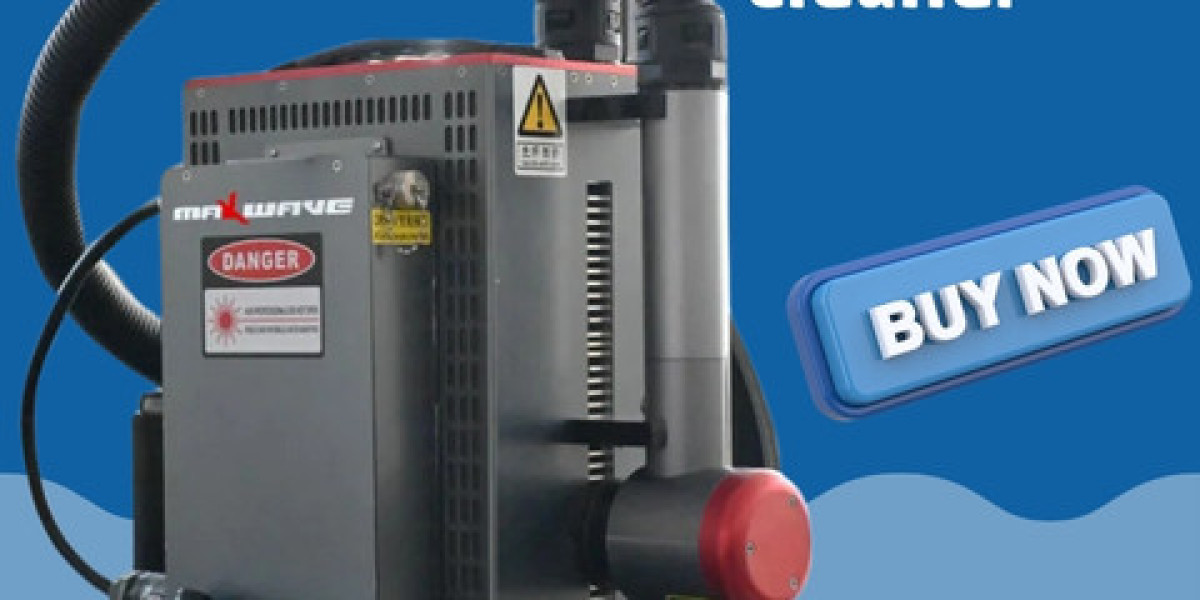Unlike traditional methods that rely on harsh chemicals or abrasive materials, handheld laser cleaner offer an advanced and eco-friendly alternative, capable of handling various cleaning tasks with precision and portability.
This technology harnesses the power of laser beams to remove contaminants from surfaces, which includes rust, oil, paint, dust, and more, while being incredibly efficient and cost-effective. But what truly makes handheld laser cleaners stand out is their ability to clean delicate and intricate parts that are often difficult to reach or handle with conventional equipment.
Understanding Handheld Laser Cleaning Technology
Laser cleaning works by focusing a high-intensity laser beam onto a contaminated surface. The laser energy is absorbed by the contaminants, causing them to vaporize or disintegrate due to the high heat produced. This process occurs without physically touching the surface, which prevents potential damage to the material underneath.
A handheld laser cleaner is compact and portable, designed for ease of use in various industrial and maintenance environments. This makes it particularly useful for applications where space is limited or where a more flexible, mobile solution is required. It also provides a much cleaner, safer, and more sustainable alternative to traditional methods of cleaning, which can be both costly and harmful to the environment.
The Evolution of Laser Cleaning in Industry
Historically, cleaning methods such as abrasive blasting, chemical stripping, and mechanical scrubbing were the go-to solutions for removing rust, grime, and paint. However, these processes come with their own sets of challenges, such as the need for costly consumables (abrasive media or chemicals) and the risk of damage to the substrate material, especially on delicate surfaces.
With advancements in laser technology, these traditional methods have been supplemented or replaced by handheld laser cleaners. This innovation has ushered in a more sustainable era of industrial cleaning. Laser cleaning offers numerous industries a way to clean surfaces without generating waste, toxic fumes, or unnecessary by-products.
One of the primary sectors benefiting from handheld laser cleaners is the automotive industry. Vehicles are often subjected to rust, oil, and grease buildup, and maintaining clean parts is crucial for long-term functionality and appearance. Handheld laser cleaners make it possible to perform precise cleaning on complex vehicle components, such as engine parts and bodywork, without risking damage to the materials.
The Role of Handheld Laser Cleaners in Maintenance and Restoration
Another important application for handheld laser cleaners is in the maintenance and restoration of historical structures and artifacts. Museums, conservationists, and restoration experts often turn to laser cleaning technology to remove layers of dirt, pollutants, or corrosion from delicate surfaces like sculptures, ancient stonework, and painted surfaces. The ability of handheld laser cleaners to focus on specific areas without touching or scraping the surface is critical in preserving these valuable and irreplaceable items.
In addition, the energy-efficient aspect of handheld laser cleaners makes them an excellent choice for regular maintenance. For instance, many manufacturing plants use these devices to maintain and clean equipment like machinery, pipes, and tanks, preventing dirt buildup that could lead to operational inefficiencies or mechanical failures. Unlike traditional methods, laser cleaning reduces downtime and maintenance costs, providing a streamlined solution for industrial environments.
Industries Adopting Handheld Laser Cleaning
The versatility of handheld laser cleaners has led to their widespread adoption across numerous industries. Some of the key sectors include:
Automotive and Aerospace: Laser cleaning is widely used for cleaning metal surfaces, removing corrosion, rust, and contaminants without damaging sensitive components. Aerospace and automotive manufacturers often require precise cleaning of delicate parts to ensure performance and safety.
Construction and Maintenance: Handheld laser cleaners are ideal for cleaning tools, machinery, and metal structures used in construction. They can be used to remove rust and contaminants from surfaces like steel beams and concrete without the need for abrasive techniques that can cause structural damage.
Art Restoration and Conservation: Cultural heritage professionals use laser cleaning to restore artifacts, paintings, and sculptures without harming the original materials. The precision of laser cleaning allows for meticulous restoration work on historic pieces.
Marine and Shipbuilding: The harsh marine environment leads to rust and contamination on ships and maritime equipment. Handheld laser cleaners help ensure that ship surfaces remain clean and corrosion-free, contributing to the longevity and functionality of vessels.
Oil and Gas: In this sector, heavy machinery and equipment are often subjected to rust, corrosion, and other contaminants. Handheld laser cleaners enable operators to maintain equipment in a way that is safe, efficient, and cost-effective, without relying on hazardous chemicals.
The Future of Handheld Laser Cleaning Technology
The future of handheld laser cleaners looks incredibly promising. As laser technology continues to evolve, we can expect further advancements that will make these devices even more efficient, precise, and versatile. Research into enhancing laser beam intensity and extending operational range is underway, with the goal of providing more power in smaller, more compact units.
Additionally, as the world increasingly focuses on sustainability, the demand for eco-friendly cleaning methods will only grow. Handheld laser cleaners already provide a greener alternative to chemical cleaning methods, and future innovations may make them even more energy-efficient and environmentally responsible.
The development of new applications is also on the horizon. For example, the use of handheld laser cleaners in the food industry for surface sanitation and cleaning could potentially be explored, opening up new market opportunities for this cutting-edge technology.
Final Thoughts
In conclusion, handheld laser cleaner represent the next frontier in surface cleaning technology. Their precision, portability, and ability to clean without the use of harsh chemicals or abrasives make them an ideal choice for a wide range of applications. From automotive repair to historical restoration, these devices offer unparalleled cleaning power while being environmentally friendly. As the technology continues to advance, handheld laser cleaners will become even more vital in industries worldwide, offering a cleaner, safer, and more efficient way to maintain and restore various surfaces. If you haven’t considered this tool for your business or maintenance needs, now may be the time to explore its potential and reap the benefits of this game-changing innovation.








